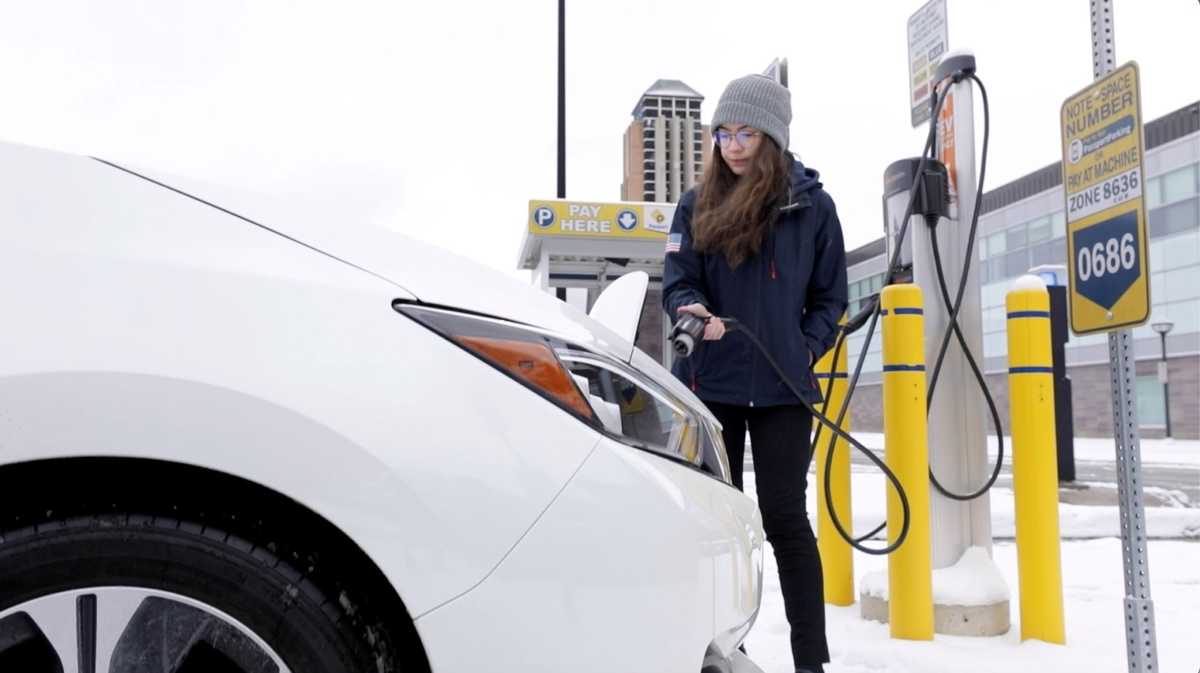 pictured: University of Michigan student Chloe Acosta plugs in an EV to charge on the North Campus of the University in Ann Arbor. Photo credit University of Michigan News
pictured: University of Michigan student Chloe Acosta plugs in an EV to charge on the North Campus of the University in Ann Arbor. Photo credit University of Michigan News
Michigan Tech: Fast-Charging Tech Designed for Cold Weather
University of Michigan engineers have developed a modified manufacturing process for electric vehicle fast chargers that allows EVs to charge quickly with high range even in cold weather. This quirk of electric vehicles has made cold-weather states such as Michigan late adopters of the EVs they manufacture in the state simply because it's challenging for electric cars to hold a charge for long range or to fast charge the battery in extreme temperatures.
“We envision this approach as something that EV battery manufacturers could adopt without major changes to existing factories,” said Neil Dasgupta, U of M associate professor of mechanical engineering and materials science and engineering, and corresponding author of the study published in Joule.
“For the first time, we’ve shown a pathway to simultaneously achieve extreme fast charging at low temperatures, without sacrificing the energy density of the lithium-ion battery,” said Dasgupta in a report published by University of Michigan News.
How Fast Can an EV Charge in Cold Weather?
“Charging an EV battery takes 30 to 40 minutes even for fast charging, and that time increases to over an hour in the winter. This is the pain point we want to address,” Dasgupta said.
Lithium-ion EV batteries made in this new way can charge 500 percent faster at temperatures as low as 14 degrees Fahrenheit (-10 Celcius). The structure and coating technique developed by the team prevented formation of lithium plating on the battery’s electrodes, which can lower battery performance. Batteries with these modifications keep 97 percent of their capacity even after being fast-charged 100 times at very cold temperatures.
“[P]lating [on the electrodes] prevents the entire electrode from being charged, reducing the battery’s energy capacity,” said Manoj Jangid, U of M senior research fellow in mechanical engineering and co-author of the study.
The team prevented the buildup on the electrodes from forming by coating the battery with a glassy 20-nm layer of lithium borate-carbonate. This coating sped up cold charging significantly, making the team’s test cells 500 percent faster charging in subfreezing temperatures.
The team has applied for patent protection with the assistance of U of M Innovation Partnerships. Arbor Battery Innovations has licensed and is working to commercialize the technology. (Disclosure: Dasgupta and the University of Michigan have a financial interest in Arbor Battery Innovations.)
